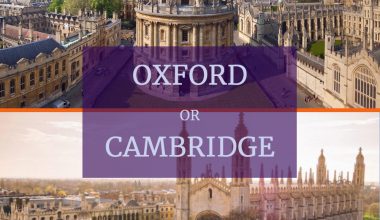Selecting the right school to attend is a big and important decision that shouldn’t be made carelessly. A lot of factors must come into consideration especially if you are going to study in the UK. One such consideration is whether to enroll in a private or public school. You might be wondering if private schools in the UK are best for you and if they are worth it.
You have to understand that private schools offer a different kind of learning environment compared with public or state-owned schools. with such extra features comes an extra cost. so allow me to tell you that it is more expensive to attend private schools in the UK than state-funded schools.
In this article, you will be equipped with relevant information to know if UK private schools are worth it for you, their pros and cons, their extracurricular activities, class sizes, overall cost and other unique features that will help you decide your choice.
Table of contents
Private schools
Private schools, also known as independent schools, are educational institutions that operate independently of government funding and oversight. They are funded primarily through tuition fees, donations, and endowments.
Unlike public schools, which are funded and regulated by local or national governments, private schools have more autonomy in shaping their curriculum, hiring teachers, and setting their educational standards.
Private schools often tout smaller class sizes, more personalized attention, and access to specialized programs and extracurricular activities. They may have a particular educational philosophy or religious affiliation, catering to diverse student needs and preferences.
While private schools can offer a high-quality education and unique opportunities, they often come with a higher price tag. Families must weigh the advantages of private education against the costs to determine if it aligns with their educational goals and budget.
Read: Charter Schools VS Public Schools: Differences, Similarities in 2024
How Private Schools are different from public schools
Private schools and public schools differ in several key ways. First and foremost, private schools are not funded by government sources and rely on tuition, donations, and endowments to operate, while public schools are funded by taxpayers and subject to government regulations.
Class size is often smaller in private schools, allowing for more individualized attention and potentially enhanced learning experiences. Private schools can also offer specialized curricula, extracurricular activities, and unique educational philosophies, catering to specific student needs or religious affiliations.
In contrast, public schools are more standardized, adhering to government-mandated curricula and regulations. They typically have larger class sizes due to higher student enrollments and may offer fewer specialized programs.
While private schools may provide a more tailored educational experience, they come with a higher cost, as tuition fees can be substantial. Public schools are generally free to attend, making them accessible to a broader range of students.
The choice between the two often hinges on individual preferences, financial considerations, and educational goals.
Are Private Schools better?
The question of whether private schools are better than public schools lacks a one-size-fits-all answer. Private schools offer benefits like smaller class sizes, more specialized programs, and greater autonomy in shaping their curriculum.
This can result in a more tailored educational experience, which some families may find advantageous. However, private education often comes at a higher cost, making it inaccessible to many. Public schools, funded by taxpayers, aim to provide a standard education that’s free to attend.
While they may have larger class sizes and fewer specialized offerings, they serve a diverse student population. The quality of education ultimately depends on individual circumstances, school quality, and personal preferences, so it’s important to research and consider your options carefully.
Also, read: Top 15 Private Schools in England – Ranked by GCSE Results
Are Private Schools worth it?
Whether private schools are worth it depends on various factors, including your circumstances and priorities. Private schools often offer smaller class sizes, more personalized attention, specialized programs, and unique educational philosophies.
These factors can provide a high-quality and tailored education that benefits some students immensely. However, private education typically comes with a substantial price tag, and affordability varies widely. Families should consider their budget, long-term educational goals, and the specific offerings of the private school in question.
Additionally, public schools can provide excellent education options at a lower cost. Ultimately, the value of a private school education is a subjective decision that should align with your family’s values and financial means.
Why choose Private Schools
People choose private schools for a variety of reasons. Firstly, private schools often offer smaller class sizes, allowing for more individualized attention and potentially enhanced learning experiences. They may also provide specialized programs, extracurricular activities, and unique educational philosophies tailored to specific student needs or interests.
Private schools may have a strong focus on values, character development, or religious instruction, appealing to families seeking a particular moral or spiritual foundation in education.
Additionally, private schools often maintain higher academic standards and may have a track record of sending students to top colleges and universities. Some families also prefer the greater control over their child’s educational experience that private schools offer.
However, it’s important to weigh these advantages against the costs, as private education can be significantly more expensive than public alternatives. Ultimately, the choice of a private school should align with your educational goals and values.
Should you send your child to private schools?
Deciding whether to send your child to a private school is a significant decision that should consider various factors. Here are key things to consider:
Financial Considerations:
When contemplating whether to send your child to a private school, financial considerations are paramount. Calculate the full cost of tuition, including any additional expenses such as textbooks, uniforms, and extracurricular activities.
Assess your family’s budget and financial stability to ensure that you can comfortably afford private school tuition without jeopardizing your overall financial well-being.
It’s also wise to research whether the school offers financial aid or scholarships and, if so, understand the application process and eligibility criteria. Careful financial planning is essential to make an informed decision that doesn’t strain your resources.
Educational Fit:
The educational philosophy and approach of the private school should align with your child’s learning style and your family’s educational values. Investigate the school’s teaching methods, curriculum, and overall educational philosophy to ensure they resonate with your educational goals.
Consider your child’s specific academic needs, strengths, and weaknesses, and determine whether the private school can provide the necessary support and customization to address these requirements effectively.
Academic Reputation:
Assessing the academic reputation of the private school is crucial. Examine the school’s track record, including factors like standardized test scores, graduation rates, and the percentage of graduates who go on to attend college.
Research the qualifications and experience of the teaching staff, as the expertise of educators plays a significant role in maintaining academic excellence.
School Environment:
Visiting the school in person provides valuable insights into its culture and environment. Spend time observing classrooms, and talking to students, teachers, and staff to get a firsthand sense of the school’s atmosphere.
Inquire about class sizes and student-teacher ratios, as smaller class sizes often allow for more personalized attention and a potentially better learning environment.
Extracurricular Opportunities:
Extracurricular activities, clubs, and sports are an integral part of a child’s overall development. Explore the range of extracurricular offerings available at the school and assess whether they align with your child’s interests and goals.
Consider the potential benefits of participation, such as skill development, personal growth, and social interaction.
Support:
If your child has special educational needs or learning differences, it’s essential to discuss these with the school.
Evaluate whether the school has the resources, specialized programs, and support services necessary to accommodate your child effectively. Inquire about the school’s approach to individualized education plans (IEPs) or 504 plans, if applicable.
Long-Term Goals and Values:
Consider your long-term educational goals for your child, such as aspirations for college and career paths. Research whether the private school has a track record of helping students achieve these goals, including college placement and preparation programs.
Additionally, reflect on your family’s values, whether they are religious, philosophical, or moral. Determine whether the school’s culture and values align with your own, as a congruent value system can significantly influence your child’s education and overall experience.
How much do private schools cost?
As of 2024, the cost of private schools varies significantly depending on several factors, including location, grade level, and school reputation. On average, parents can expect to pay approximately $23,839 per year per child for a kindergarten through twelfth-grade private school.
However, it’s essential to note that this is just an average, and tuition fees can range widely, from more affordable options to elite institutions with much higher costs.
For private high schools specifically, the average annual tuition is approximately $15,645. Keep in mind that these figures often do not include additional expenses such as uniforms, books, extracurricular activities, and transportation, which can add to the overall cost of a private education.
Families considering private schools should carefully research and budget for these expenses to determine if they align with their financial means and educational goals.
FAQs
Private school kids may have certain advantages like smaller class sizes and specialized programs, but the challenges and opportunities they face vary. It’s not universally “easier.”
The best age to start private school varies but is often in the early years, such as preschool or kindergarten, to benefit from foundational education and a cohesive school community.
One significant disadvantage of private schools is the high cost of tuition, which can be a barrier to access for many families, limiting educational opportunities based on financial means.
Conclusion
There is no one answer as to whether UK private Schools are worth it or not. The best schools are the ones with conducive environments that enable academic growth, personal development, and overall well-being.
Having looked at the key considerations made, and considering your interests, learning styles, and financial capacity, you are now equipped to make an informed choice.
References
- ourkids.net – Benefits of private schools
- goodschoolsguide.co.uk – Is private school still worth the money?
- finance.yahoo.com – Is Private School Worth It?




